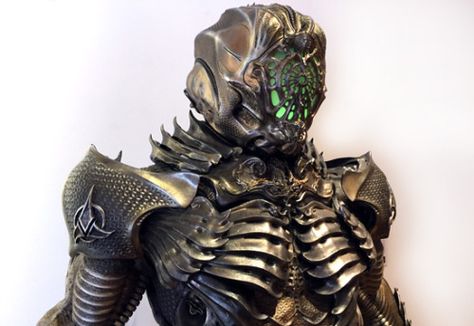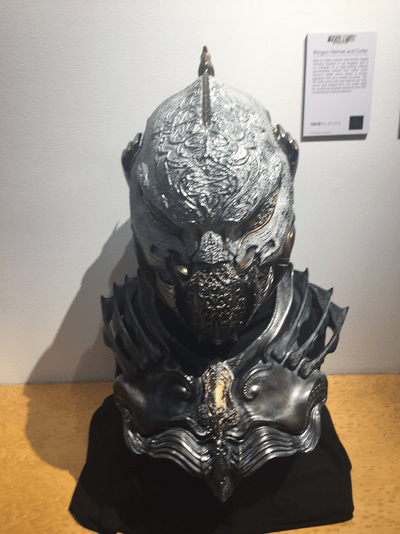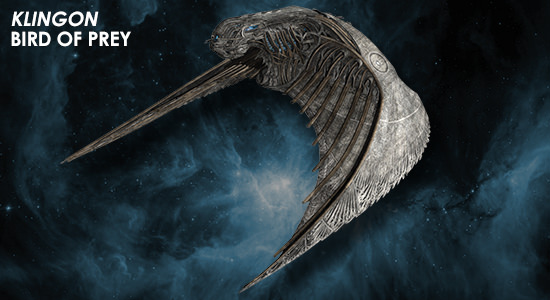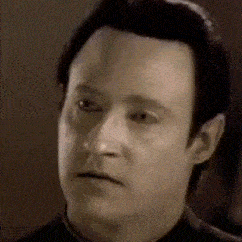I am the kind of person who enjoys “big weird” scifi like Stanisław Lem. Stories about trying to relate to and find common ground with something so alien that the prospect of even understanding is basically hopeless. Star Trek usually doesn’t do stories that, which makes sense as it often uses alien races as allegories or stand-ins for real-world human relations.
That said- I thought those early Klingons were super weird and scary because they were just so alien. It really made sense thinking about how it took a century before they could get to the events of Star Trek VI, and it made the Khittomer accords feel like so much more of an accomplishment. Like- you made a treaty with WHAT?
And just aesthetically their ships and armor looked like something out of HP Lovecraft or HR Geiger:



This is not to say I dislike how Klingons were portrayed previously, kinda like Mongols in TOS or Vikings in DS9, just that they never felt scary to me. They never felt like warriors. I was never afraid for the gallant crew of the Enterprise D (a science and exploration vessel) going into battle against Klingons. But I really enjoyed the alien-ness Disco tried to go with. Anyone else with me?
EDIT: PEOPLE I SAID WHO’S WITH ME NOT WHO ISN’T CM’ON 


This common refrain is so condescending, as if we’re being ridiculous expecting consistency in a piece of narrative media! It doesn’t matter if the Klingons, at the time of TMP, were intended to be a total retcon, because DS9 made lines of dialog that make that impossible. I understand that there isn’t a cohesive narrative across all of Star Trek, and I don’t expect writers of an episode of 1990s television to be cognizant that maybe a prequel will come along and show anachronistic Klingons, but what I do expect is the producers of Enterprise to make better decisions than “but da klingons have ridges, how will people recognise the klingons if they look like how they did in TOS?” (IDK Berman, guess you should have thought of that before doing a prequel series).
And today, in this day and age where everyone at least knows about secondary worlds (IE, a setting distinct/irreconcilable from the real world) if not in name than be experience, I absolutely do expect a level of consistency above what we got in the 80s and 90s.
Obviously, advances in real world technology will impact how TV and movies are made, but we’re not talking about Matte Paintings vs CGI. It’s not like when the shows in the 90s made the switch from physical models to CGI, they randomly decided “hey, lets make the Romulan warbird a completely different looking ship”, they recreated the physical model. When they started to be able to show more activity or detail in establishing shots of the ship or station, they didn’t then also decide to give DS9 an extra pylon, or make it yellow and act like it always was like that.
are you talking about Worf’s “we don’t talk about it with outsiders” line in Trials and Tribble-ations? Because I also think it’s ridiculous that people took that line so seriously. It’s a little meta joke in a comedic episode that solely exists to celebrate nostalgia for TOS. I don’t get how you can take it as serious confirmation that Klingon’s appearance changed in universe in that context.
Frankly, I don’t get how someone can watch a whole scene and go “well that didn’t actually mean anything for the characters that just experienced it”. It makes more sense to assume that words have their intended meaning, and that Worf’s friends were genuinely shocked to see flat-headed Klingons than it does to pretend Worf, Bashir, and company never actually had that discussion. Like, yeah it’s all fake but main characters are supposed to be real people, the situations are supposed to be real to them…